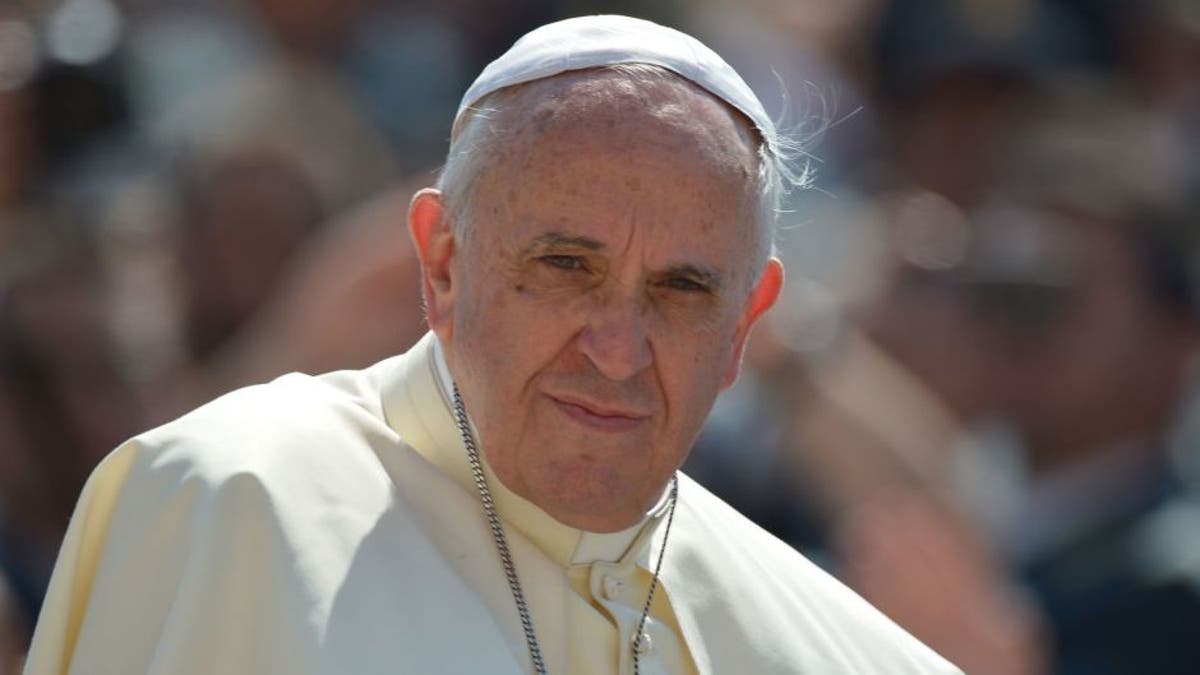
Pope Francis (AP)
One of the ever-changing splendors of the Eternal City is the rainbow forest of street posters – deliciously known as manifesti in Italian -- that decorate almost every Roman neighborhood. Political parties from communists to nouveau fascists fly their clashing colors, while the state lottery office promises that your fortune awaits -- if you’ll just buy a ticket.
But no one in decades had seen the like of the posters that sprung up over the weekend, depicting a sullen Pope Francis, and asking, rhetorically and unanswerably, “Where is your mercy?” The posters accuse the Argentine-born pope of removing priests, ignoring cardinals’ advice, and “decapitating” an ancient religious order, the Knights of Malta, which rebelled against his populist vision for the Catholic Church.
Romans, long used to plots against the powerful – the Ides of March are not far off -- have gleefully fallen into a guessing game about the author of the posters. A disgruntled Catholic with enough sway to print and paste them without detection? An aggressive atheist? Perhaps, even, a cardinal with a grudge?
It is a bold, if anonymous challenge to a pontiff who finds himself in a pitched battle with members of his inner court, or curia, who believe Francis is moving too quickly, and recklessly, to strip away centuries of tradition and remake the Church into the world’s largest social services agency.
While no one claims to know the perpetrator of the so-called “poster plot,” its motives are clear. An increasingly vocal minority of the Church hierarchy is worried about the way Francis operates, and by extension, how his actions will affect them. With the poster parade, an intra-Vatican struggle for influence has spilled into the streets.
While no one claims to know the perpetrator of the so-called “poster plot,” its motives are clear. An increasingly vocal minority of the Church hierarchy is worried about the way Francis operates, and by extension, how his actions will affect them. With the poster parade, an intra-Vatican struggle for influence has spilled into the streets.
The pope has given his opponents reason to worry. He has artfully cultivated a kinder-gentler, man-of-the-people image since his elevation to the Throne of Peter in 2013. He declined to live in the Apostolic Palace reserved for the pope. He shunned the red shoes that go with his office, preferring brown. He criticized cardinals who are chauffeured around Rome, choosing to ride in a compact car instead of the gas-guzzling, bullet-proof Pope-mobile. He kissed the feet of prisoners, invited gay Catholics to Mass, and advised rich people to part with their wealth.
More substantively, he has publicly excoriated members of the Church hierarchy for spending more time playing Vatican politics than helping the poor. He has suggested, alarmingly to traditionalists, a willingness to consider changes in Catholic teaching regarding homosexuality, divorce, and the role of women in the Church.
These simmering tensions came to a head last month, when Francis took personal control of the 1,100-year-old Order of the Knights of Malta, a well-funded conservative lay organization dedicated to charitable works. The order, which had enjoyed sovereignty over its affairs for centuries, tried to fire one of its top-ranking officers who oversaw a program that distributed condoms in Burma. Francis reinstated the official and, in retaliation, demanded the head Knight resign. The pope imposed his own delegate to administer the Order, and its multi-million dollar treasury.
Further alienating those who think his papacy has spun out of control, Francis gave an interview, printed this week in the Italian newspaper Corriere della Sera, in which he bluntly said, “There is corruption in the Vatican.”
The overnight appearance of the anti-Francis posters temporarily replaced the epic incompetence of the Italian government as cocktail-party fodder. The Rome police force has promised to review its closed circuit cameras, which, as in other big cities, are ubiquitous. So far, they have not released any information about what the cameras may have captured.
Francis is only the latest radical to call Rome home. The city has endured an emperor who declared his horse a member of the Senate, another who burned the city to the ground, and a paunchy Fascist duce who conceded, “It’s not impossible to govern Italy. It’s useless.” Francis may come to the same conclusion about the Catholic Church. He needs only to take a brown-shod stroll down any street.
